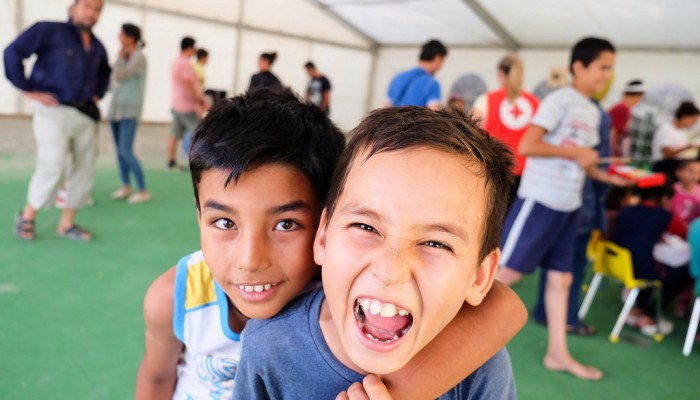ARRANGED FRIENDSHIPS AND THE POTENTIAL OF INTERCULTURAL CONTACT
This post forms part of our series in showcasing abstracts of presentations featured at our annual postgraduate interdisciplinary conference on refugee and forced migration research, hosted in October 2017 at The University of Melbourne.
Phillipa Bellemore
While Australia’s settlement services are regarded as first class, there is a gap in the bridges between refugees, asylum seekers and their local communities (Neumann, 2013; Fodzar & Hartley, 2013). Westoby (2009) suggests informal buddy programs are missing from the settlement experience and instead are replaced by connections to services.
This gap is important because most settlement services are time-limited and encourage eventual independence from their services. Refugee mentoring programs, where a trained volunteer is linked to a refugee or asylum seeker encourages longer-term relationships with reciprocity, trust, cultural exchange and a caring relationship forming core elements of the bond (Askins, 2016, Behnia, 2008). In this presentation, I will briefly discuss the methodology for my research and highlight ethical challenges in the fieldwork.
Next, I will explore the potential for refugee mentoring programs to provide sustainable relational bonds in local communities. Exactly how “arranged friendships” between strangers are imagined and developed depend on a variety of factors, and the bonds can range from fragile to immersive. Risk management regimes adopted by community services can undermine relationship building and reinforce stereotypes of the Other.
Care needs to be taken that the voice of refugees and asylum seekers is heard. Mentors and mentees both require support to navigate the relationship and to grow new limbs (Wise, 2010) and apply cultural curiosity (Hooks, 2013).
Phillipa Bellemore is a PhD student in Sociology at Macquarie University. She is investigating the relationship between refugees and the receiving community through studying three refugee mentoring programs. Prior to the PhD, Phillipa co-ordinated a Tibetan mentoring program in Sydney for nine years. She is a member of Macquarie University’s Academics for Refugees and Asylum Seekers.
